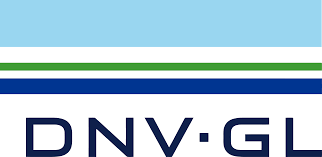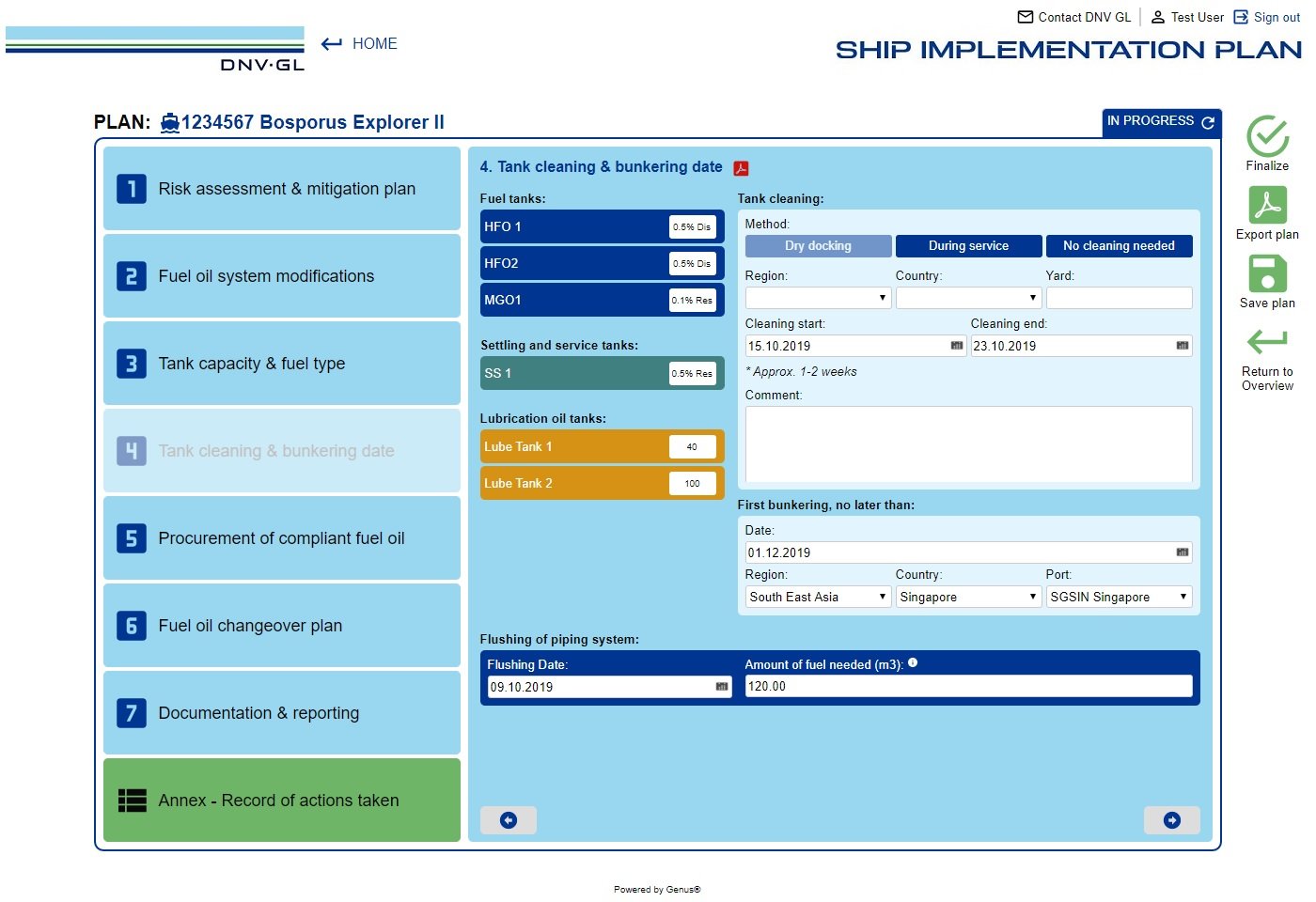Innovate
DNV helps shipowners meet environmental regulations with no-code
10 days
to first demo was ready
2-3 weeks
to be fully up and running
2.000 vessels
registered in a few months
Intro
January 1st, 2020 marks a turning point for international shipping. New regulations for a greener shipping industry force the entire world fleet to reconsider their current fueling scheme and ensure that only compliant fuels are used to lower emissions.
DNV wanted to help the industry by making the transition as easy and painless as possible. Changing a fuel scheme requires thorough planning and is a collaborative effort within each shipping company. DNV knew that by making a collaborative, web-based application to help facilitate this process, plans would be easier to create, maintain and (most important) follow through.
By using the Genus platform, DNV was able to develop an application in just a few weeks, while maintaining the security and integrity required in an application with sensitive customer data. The application was instantly well received and adopted by the industry.
“Genus has enabled us to be the first company to reach the market with an application for planning for the new emission requirements. The first demo version was ready in just 10 days.”
-Christos Chryssakis, Business Development Manager DNV
-
Built a no-code application in 2–3 weeks to help shipowners comply with new IMO emission regulations.
The solution enabled collaborative planning, risk assessment, and documentation for over 2,000 vessels.
Expanded DNV’s reach beyond its existing customer base, with nearly half the vessels not classed with DNV.
Challenge
Meeting new regulations
From 2020, the International Maritime Organization (IMO) will enforce new regulations to reduce sulfur oxide emissions from vessels trading in international waters. The IMO is a specialized agency for the United Nations, responsible for safety, security, and environmental performance, and is helping pave the way for a greener shipping industry.
“The new regulations are of an ambitious nature,” explains Christos Chryssakis, Business Development Manager at DNV. “Thorough planning will be essential for a smooth transition into the new regulatory regime and for ensuring vessels are compliant”.
Being a leading advisor on the road toward greener shipping, DNV strives to make the 2020 transition as smooth as possible for the entire industry.
“We wanted to make the planning process easier. The IMO provided guidance on which areas to consider before January 1st, 2020, but the task can be tedious without the proper support,” says Christos.
DNV’s solution was to digitalize the guidelines provided by IMO. If a user-friendly planning application could be developed; creating, maintaining, and implementing the plans would be easier for ship owners.

Going no-code
As the plans from IMOs Marine Environment Protection Committee were not approved until the end of 2018, DNV knew that time-to-market would be essential to drive the adoption of the new application.
“We needed a solution that would reach the market as the planning phase started for various ship owners, while not compromising the security and quality required for a professional and modern application,” adds Christos.
DNV chose Genus as the platform to develop the application upon. With built-in security capabilities to support every need, as well as its flexibility in functionality and ease of use, Genus was the perfect match when both speed and quality were of the essence.
Solution
The Ship Implementation Plan
The Ship Implementation Plan is a web-based application, supporting ship owners and managers with streamlined and user-friendly preparation and maintenance of plans for their entire fleet. As Genus allows for an array of authentication possibilities, the application is available for anyone who is already a user of DNV’s Veracity eco-system.
“The application enables sharing of vessels between users, making it possible for technical managers to get a complete overview of their fleet as well as distributing relevant tasks between offshore and onshore personnel”, says Christos.
The application includes forms for registering technical vessel data, planned modifications, key milestones, and perform risk assessments. In addition, users can upload relevant documents of actions taken in order to be compliant by the deadline.
Result
Reaching far beyond the existing customer base
The application was very well received in the industry, with almost 1000 active users across the entire world and more than 2000 registered vessels within a few months of its launch. Around half of the vessels are currently not classed with DNV, proving the application has gained reach well outside DNV’s current customer base and has helped fill a gap for an entire industry.
“Genus has enabled us to be the first company to reach the market with an application for planning for the new emission requirements. The first demo version was ready in just 10 days,” says Christos. “This has given us great exposure and increased our standing as a leading advisory for the shipping industry. As making changes to applications in Genus is so easy, it also enables us to instantly implement changes proposed by our customers, further improving the functionality of the tool and increasing the customer satisfaction”.
After the successful implementation of the Ship Implementation Plan, DNV is already exploring how Genus can help them differentiate themselves from the competition in other areas.
About DNV-GL
DNV is an international risk and classification company headquartered in Høvik, Norway, with more than 12 000 employees in roughly 100 countries. The company provides services like certification, classification, inspection, testing, verification, and assurance for sectors including maritime, oil and gas, power, and renewables.
In the maritime sector, DNV is the world’s leading classification society providing service for more than 12 000 ships and mobile offshore units. They are also a recognized advisory, helping enhance safety, quality, energy efficiency, and environmental performance to the global shipping industry.







